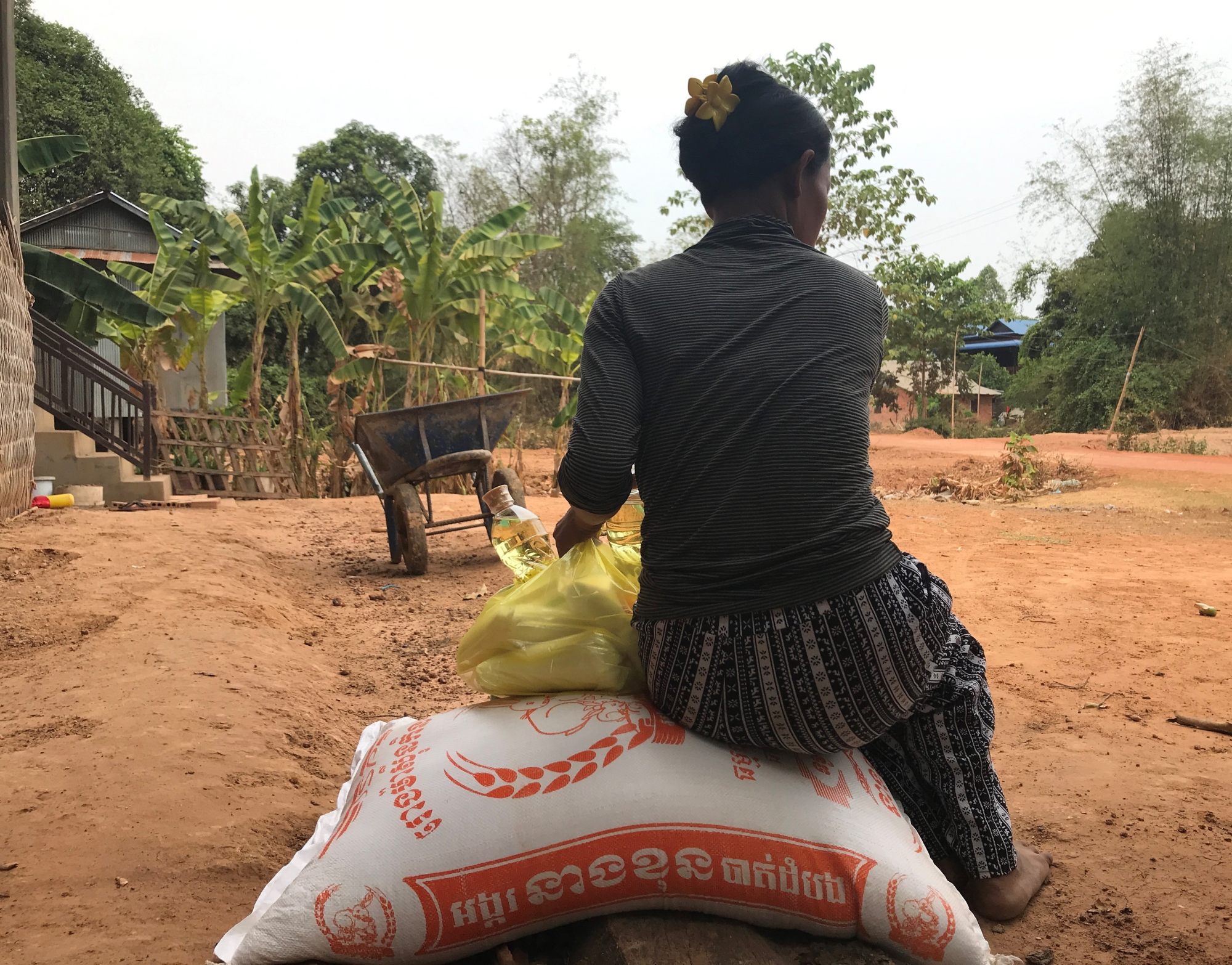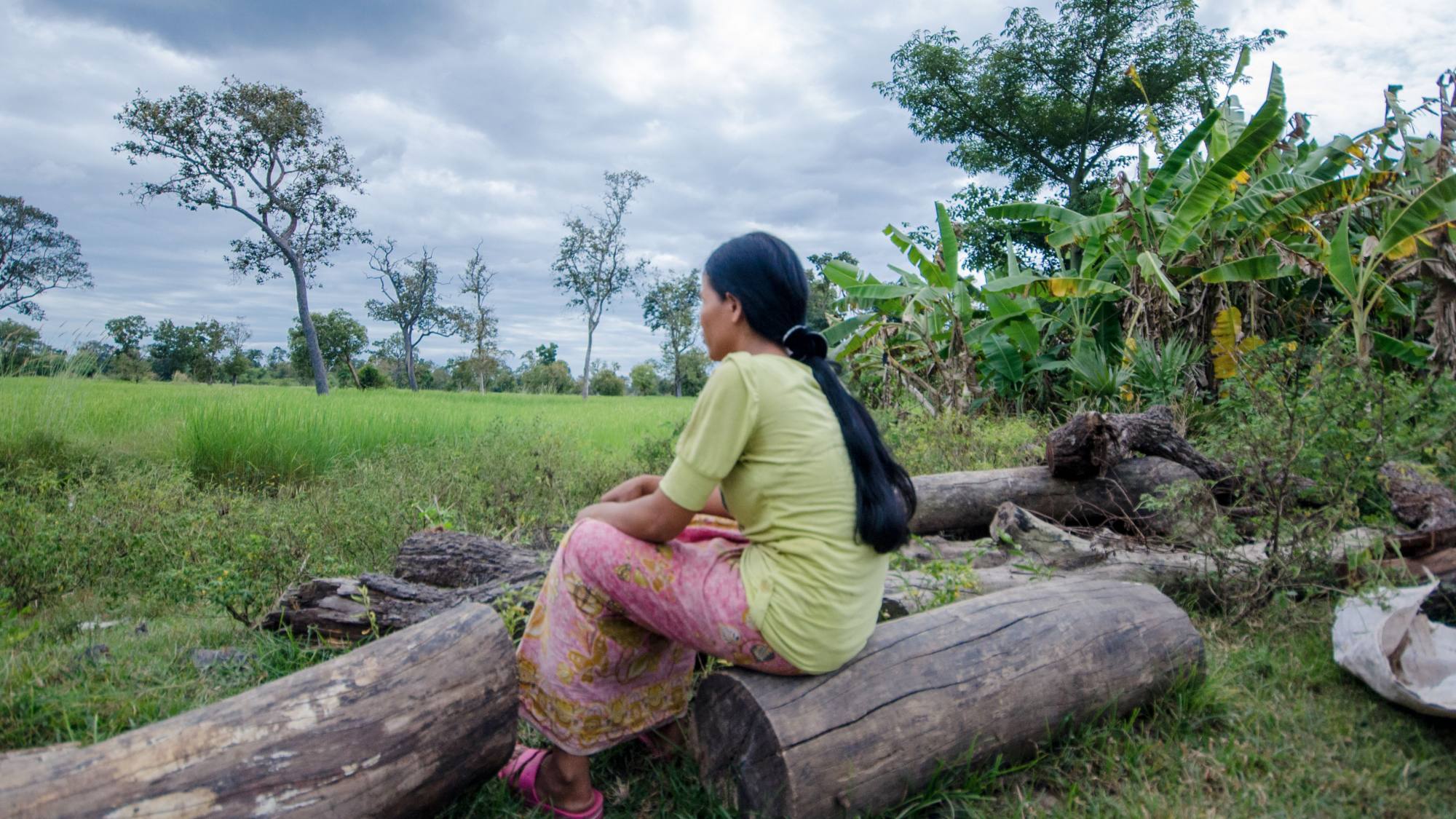
In Cambodia, a property tycoon beats his wife in a Facebook video – and she gets blamed
- Images of Duong Chhay assaulting his (now ex) wife, cosmetics entrepreneur Deth Malina, have gone viral on social media
- The tycoon has gained sympathy from followers by claiming he was provoked, highlighting the prevalence of victim shaming
On March 15, Deth published on Facebook an hour-long compilation of clips that showed displays of violence that have torn the nation in half. In one scene, property tycoon Duong Chhay, 31, lunges across his child to beat Deth, also 31. He then puts her in a headlock and pulls her away. In others, he can be seen dragging her by the hair and hitting her repeatedly.
The footage is said to have been recorded at the couple’s home at the end of 2020, before they divorced. Within 24 hours, the video went viral with more than two million views, but was promptly taken down. The next day on Facebook Live, property tycoon Duong claimed his ex-wife had provoked him. This prompted a wave of sympathy from his followers.
When are Asia’s governments going to step up for women’s rights?
While Duong has been stripped of his “oknha” status, a coveted title issued by royal decree, no arrest has been made. Deth has also faced a huge public backlash that highlights one of the main issues surrounding violence against women in Cambodia, where domestic violence is prevalent – victim-blaming.
Billy Gorter, executive director of This Life Cambodia, which operates programmes under the This Life Without Violence umbrella to raise awareness of and tackle gender-based violence, said: “[This] highlights the fact that victim-blaming is still hugely problematic in Cambodia. We watched the progression of the case with concern, and while initially there was an outpouring of support for Deth Malina, we were disheartened when these voices were overwhelmed by those supporting the perpetrator of abuse.”

“This is not very encouraging for women to come forward,” said Nassima Elouady, who oversees NGO Planète Enfants and Développement’s violence against women programmes.
“It shows there are no consequences and a huge lack of accountability from the perpetrator, and a lot of people were blaming her despite the videos.”
According to Cambodia’s National Action Plan to Prevent Violence Against Women for 2019-2023, which was released in January, one in five women aged 15 to 49 had experienced physical violence at least once since the age of 15. Only two in five women sought help, with only 24 per cent reporting it through a formal service.
In Malaysia, domestic violence spikes amid lockdown
The horrors of the abuse on display are all too familiar to Sophea. She suffered five years of violence at the hands of her alcoholic husband until she was forced to seek help after a beating left her unconscious with a broken jaw and shattered ribs. However, there is one major difference in their circumstances – economic shackles.
“I’m a countryside girl from a small village where my family earned a few dollars a day,” said Sophea. “We had a basic house and lived a simple life, it was often hard to find the money for food. I didn’t think it happened in rich families.”
Elouady, who works in Cambodia’s most underprivileged communities, said while poverty was often a major contributor to domestic violence, it was not the driving factor. “This shows poverty is a risk but not the cause of violence against women. The cause is gender inequality,” she added.

Pok Panhavichetr, executive director of the Cambodian Women’s Crisis Centre, said entrenched societal norms hampered the nation’s fight against domestic violence. The Chbab Srey is a centuries-old code of conduct taught to women in schools. In 2007, it was partially removed from the national curriculum but its values are still widespread.
The poem instructs women to, “Be respectful towards your husband. Serve him well and keep the flame of the relationship alive”, “Serve and respect your husband at all times”, “never respond to your husband’s anger”, and “do not bring internal problems out of the house”.
Serve and respect your husband at all times
“The poem makes women be in a submissive or inferior position to their husbands, which can cause power imbalance within the family,” said Soriya Theang, a junior researcher in gender at independent think tank, Future Forum.
In recent years steps have been made towards educating women – and men – to shift ingrained perceptions and work towards equality, while providing support to survivors. However, huge hurdles remain. Panhavichetr said the domestic violence law needed strengthening and law enforcers needed to be provided with better knowledge to deal with domestic violence appropriately.
“While we haven’t had a full lockdown in Cambodia, people have been encouraged to stay at home, for long periods of time schools have been closed and many people have lost jobs,” said Elouady. “This means many women are now more than ever exposed to the risk of domestic violence.”
*Sophea’s name has been changed to protect her identity

